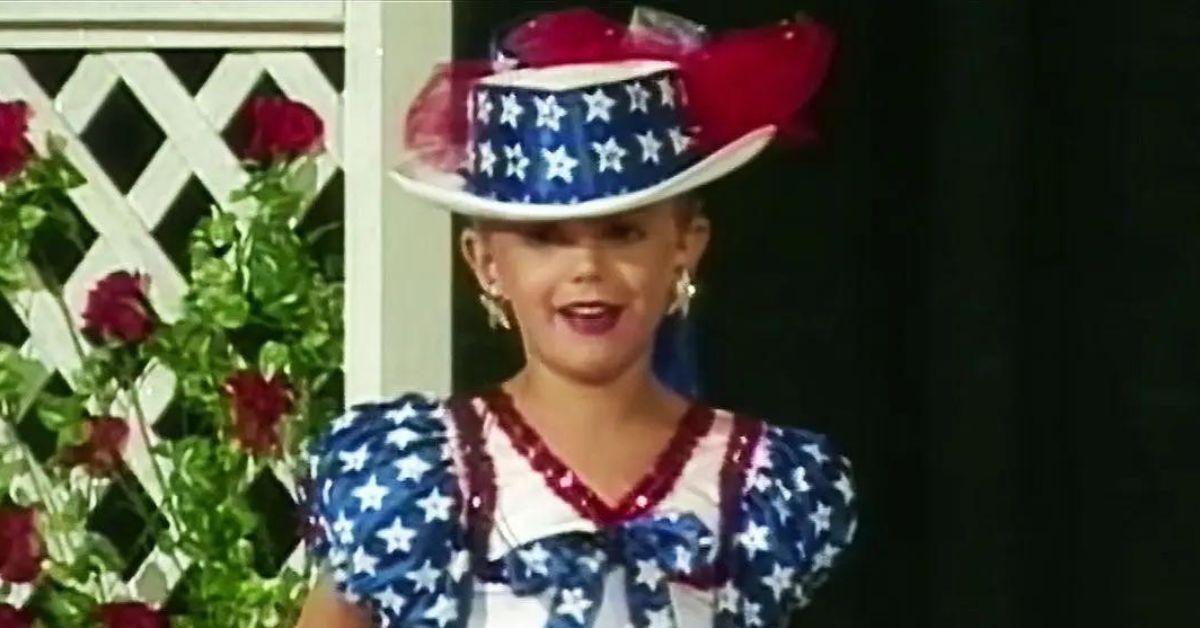Kamala Harris 'Threw Cases for Sugar Daddy Boyfriend and Her Husband' During Relentless Rise to Top: 'Those With Links Got Off!'
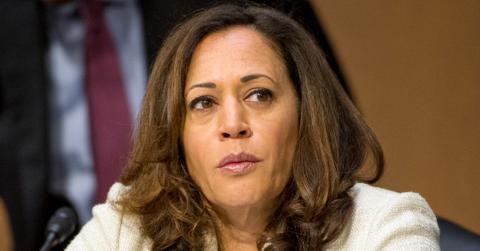
The letter also comes after verified deepfake image claiming Harris herself was once a sex worker was being passed around on the internet.
Aug. 22 2024, Published 11:05 a.m. ET
Kamala Harris has made a lot of her "tough on crime" stance as she runs for the White House.
But RadarOnline.com can reveal the US president wannabe is facing claims she chucked prostitution and corruption cases for cronies of Willie Brown – the political power-broker "sugar daddy" she dated in the 1990s.
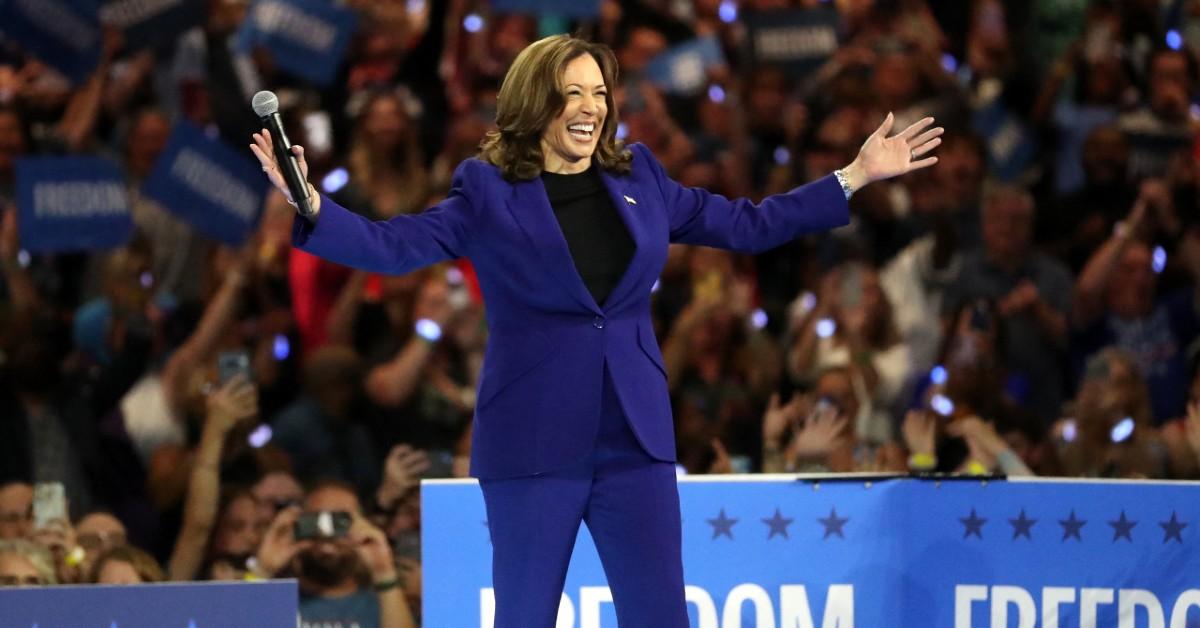
Harris is cheered at the Democratic National Convention after a rise to the corridors of power following years as a prosecutor in San Francisco.
The vice-president – who started her political career as a California prosecutor – is also said to have snubbed calls from her former legal staff to investigate pyramid-scheme behavior at a diet supplement firm when her husband Douglas Emhoff worked for the lawyers who represented the company.
Investigative journalist Peter Schweizer says in his book Profiles in Corruption: Abuse of Power by America's Progressive Elite: "As San Francisco district attorney, Kamala Harris enjoyed enormous discretion in the handling of legal cases.
"She would often determine which cases to prosecute and which not to. This was particularly true in highly public and politically sensitive cases.
"Over the course of her tenure, a consistent pattern emerged of favoring individuals and institutions that were either her political supporters, or those closely aligned with Willie Brown, or both.
"Some of these cases involved all-too-common instances of big-city cronyism and corruption involving city contracts, but other cases would involve disturbing crimes that were covered up."
Harris' phenomenal rise to power has been overshadowed for years by gossip she owes her ascent to fixer Brown, now 90, who she started dating when she was 29 and still an up-and-coming lawyer who had caught the then 60-year-old’s roving eye when he was on a break from his wife.
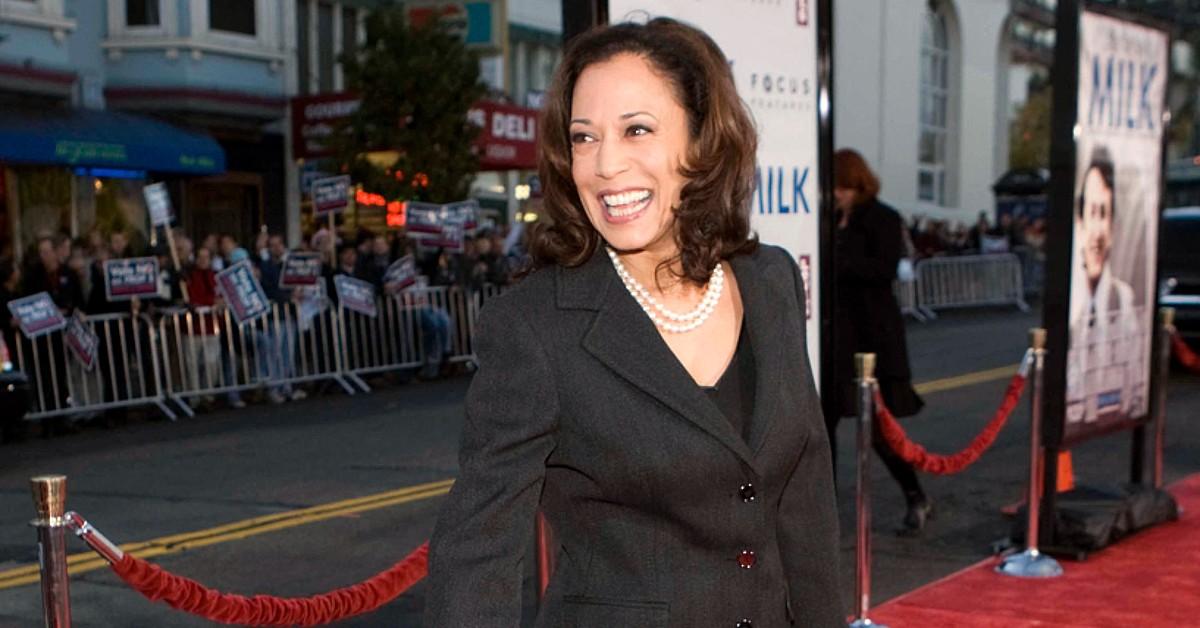
Harris shows off her showbiz connections by appearing at the premiere of the 2000 film MILK starring Sean Penn.
RadarOnline.com recently revealed the true extent of their long-running relationship – from how he gifted her a BMW when she was already in a $100,000-a-year job he arranged for her, and Harris' use of his massive network of rich and powerful contacts to enter legal corridors of power.
Harris has spent years saying she blended criminal justice reforms with a tough stance on crime in her 12-plus years as San Francisco's district attorney and then as California's attorney general.
Schweizer has a different take on how she tackled the vice problem in San Francisco.
He says in his book, which forensically dissects her years as a prosecutor: "Harris' strange objections to prosecuting prostitution cases connected to (police) raids (on San Francisco's sex clubs) have a possible explanation.
"The owner of both the Market Street and New Century theaters was a company called Déjà Vu.
"An owner of Déjà Vu, Sam Conti, had a long history with Willie Brown. Conti had first hired Brown as his defense attorney back in 1977.
"They remained friends. At Conti's 2009 funeral, Brown delivered a videotaped eulogy.
"Harris' handling of this simple vice matter would set up questions about her prosecutorial conduct as it related to powerful political allies and friends. While she was prepared to throw the book at those with no connections to her, those with links to her or her powerful allies would often get charges dropped.
"It was selective enforcement of the law, hardly what one could call 'blind justice'."
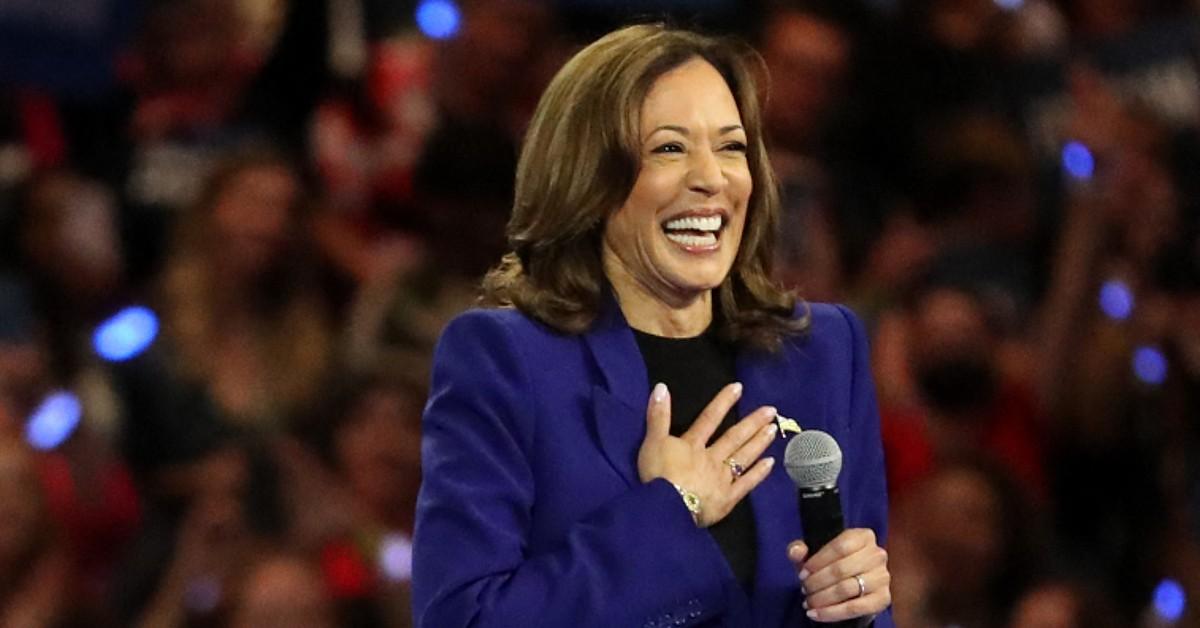
Harris failed to prosecute a single priest for abuse during her tenure as a prosecutor.
Cops had probed San Francisco's adult entertainment clubs and found dancers were taking customers behind closed doors and having sex for money.
After repeated complaints the city's strip joints were really serving as prostitution clubs, the San Francisco Police Department warned them by letter they would be facing checks – but Schweizer says Harris' "staff sent the message to hold off on the enforcement".
In response to continued complaints, officers conducted sting operations that saw undercover cops quickly solicited by female employees for paid sex "within minutes" of them entering the sleazy clubs.
Despite police considering their evidence part of "slam-dunk cases", Schweizer says they were dropped by Harris.
San Francisco Police Department vice-captain Tim Hettrich is quoted in the reporter's book saying: "It just leaves me in amazement. It was almost legalizing prostitution."
The author added publicly, Harris claimed the problem was police should be focused on arresting "street-level pimps and johns" and not sex club working girls.
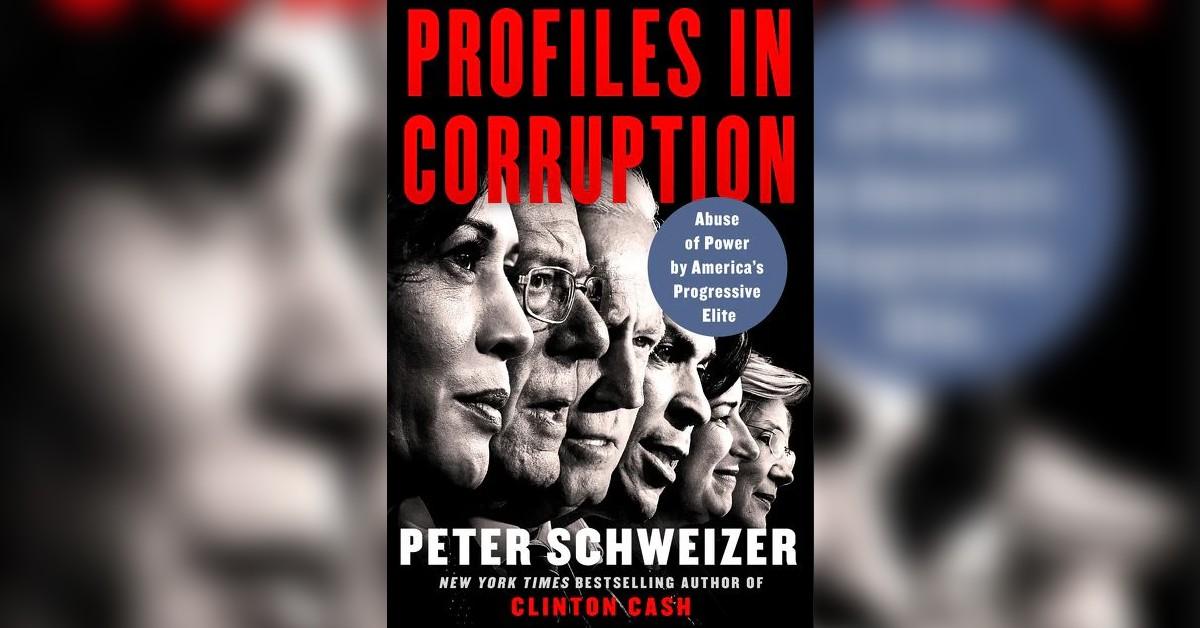
Investigative reporter Peter Schweizer has forensically detailed Harris' legal history in his book Profiles in Corruption.
In a statement, Harris claimed there had been "no arrests" cover cases from the streets – but SFPD investigator Joe Dutto was quoted in Schweizer's books declaring: "That's an outright lie."
The author adds there were 50 to 70 johns arrested every month in the city.
As RadarOnline.com also revealed, Schweizer used his book to highlight how – after she replaced Terence Hallinan as San Francisco district attorney in 2003 following a bitter campaign to oust him – she failed to prosecute pedophile priests in the Catholic church who had been so relentlessly pursued by her predecessor.
He adds in his probe into her legal history: "The blind eye to priest sexual abuse was just part of a pattern of favoritism that has permeated Harris's career as a prosecutor.
"Though not as dramatic as the sexual crimes, there were numerous instances where she was apparently prepared to look the other way to protect politically connected insiders.
"Her actions represent the ultimate form of leveraging power in the criminal justice realm deciding not to pursue criminal charges."
Schweizer adds Harris entered the San Francisco attorney general's office facing a "whole host of issues beyond priest sexual abuse and strip clubs".
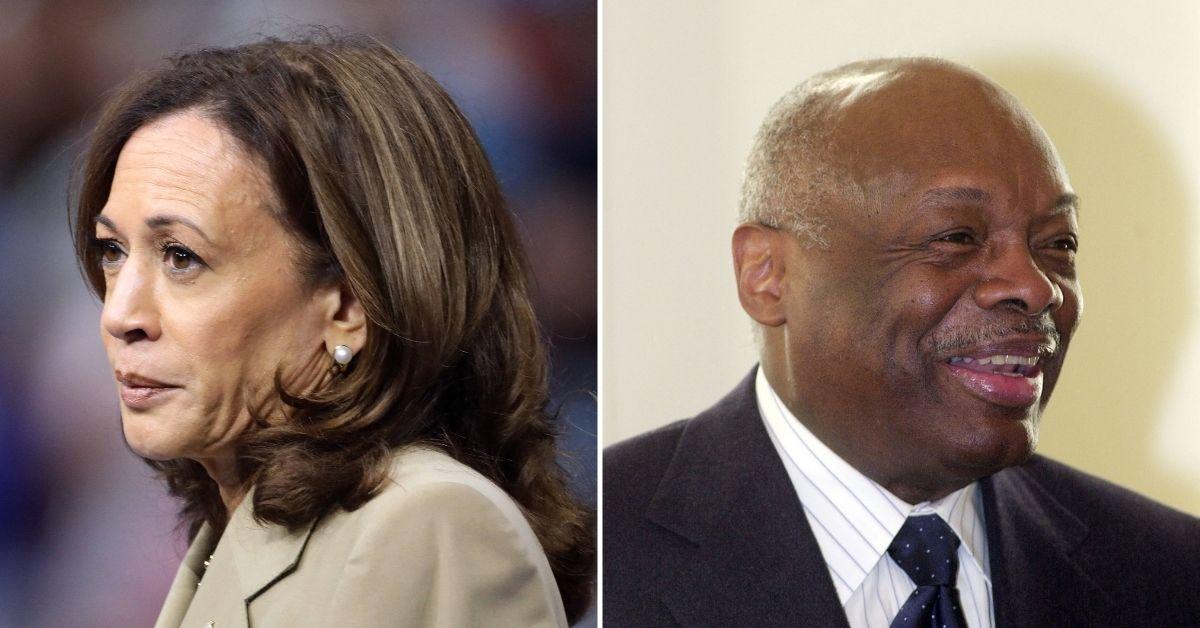
Harris is said to owe her rise to power to political power broker Willie Brown.
He said: "Among them was the rampant corruption that had become so common under her ex-boyfriend and political sponsor, Willie Brown.
"During the bitter campaign, Terence Hallinan had publicly stated that Harris would be unwilling to bring corruption charges against allies and friends of Willie Brown because they were still too close.
"Her record as a prosecutor would prove him correct."
Schweizer says among the cases Harris dropped was one against real estate lawyer Hector Chinchilla.
He had been appointed head of the San Francisco Planning Commission by Willie Brown – shortly after he became mayor.
By 2002, then-prosecutor Terence Hallinan had charged Chinchilla with seven misdemeanor ethics laws violations.
Schweizer said: "Given how close Chinchilla was to Willie Brown, the case 'roiled City Hall'.
"Barely eight months in office, after a judge dismissed some charges, Harris dropped all remaining charges against Chinchilla."
Schweizer added it would "not be the only case of Harris dropping the criminal charges of a Willie Brown ally".
He names a cement and concrete company owner who also got a case dropped under Harris' tenure.
And he stressed she "did not participate" when attorney generals from 14 other states, including New York, launched an effort in 2015 to investigate nutrition companies on the grounds of false advertising and mislabeling.
Their targets included Herbalife – about which Harris' attorney general's office had received more than 700 complaints.
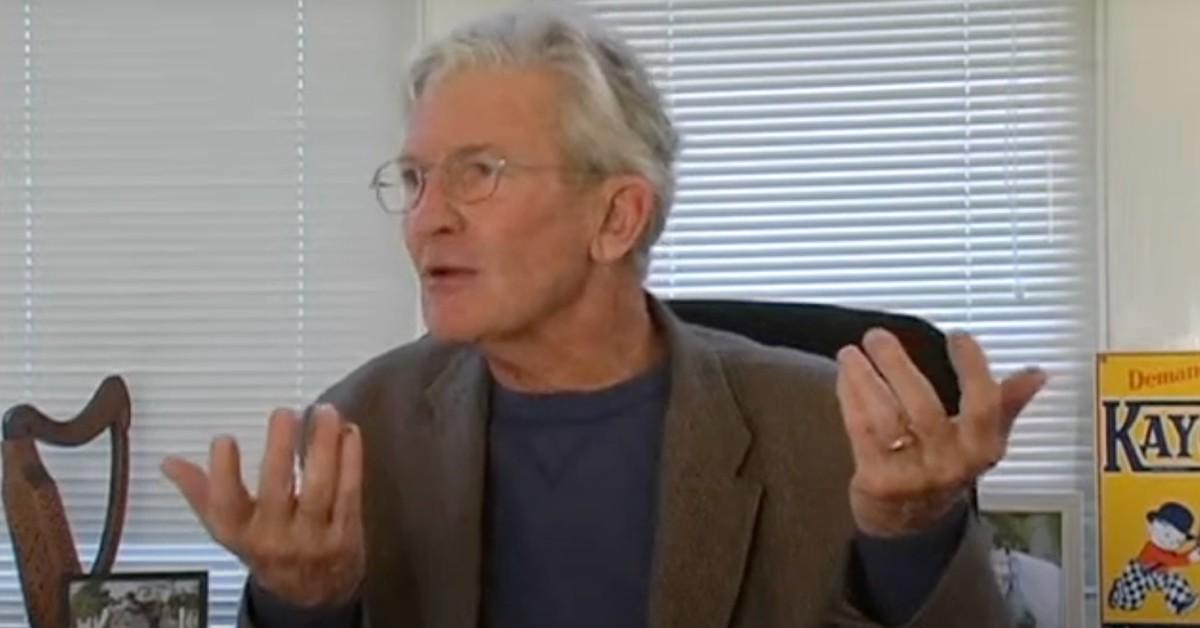
Former San Francisco District Attorney Terence Hallinan was replaced by Harris – who has been slammed for her record in the role.

Schweizer said: "In July 2016, the Federal Trade Commission won a $200million settlement against Herbalife. But Harris never even investigated the company."
He added: "It is worth noting that those corporations in question all happened to be clients of her husband’s law firm, Venable LLP."
Herbalife was one of Venable's biggest clients – paying her partner Emhoff's firm for thousands of hours of legal work.
Schweizer said: "In 2015, prosecutors from Harris' own attorney general's office based out of San Diego sent her a long memorandum arguing that Herbalife needed to be investigated.
"They also requested additional resources to probe further into the company and its practices. Harris declined to investigate or provide the resources – and never offered a reason."
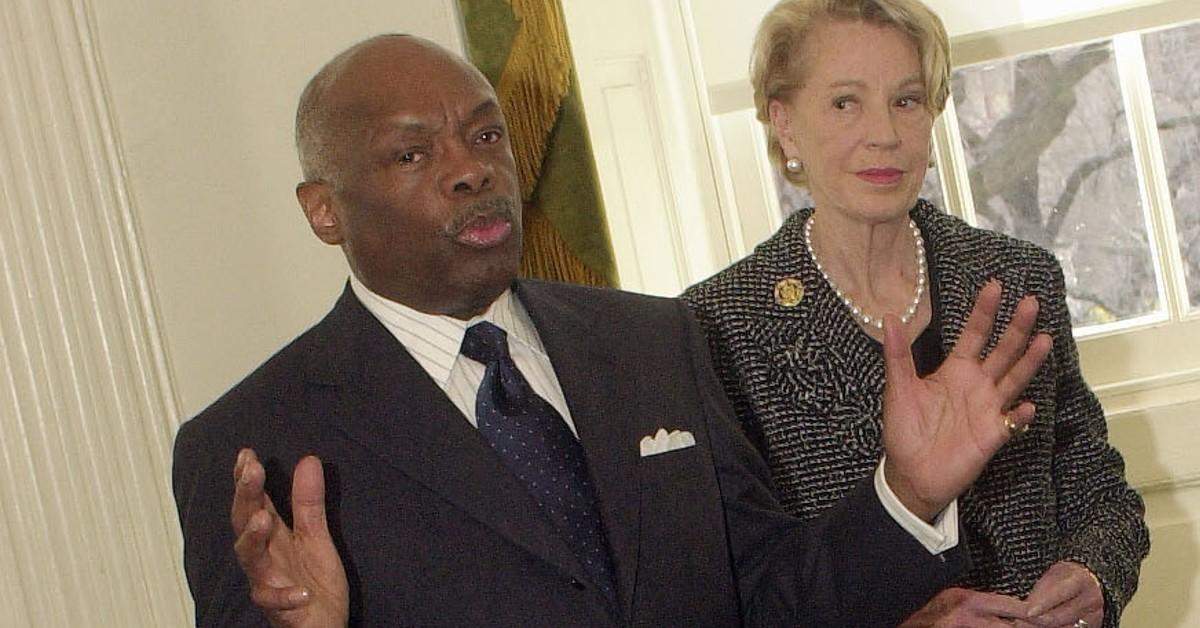
Willie Brown has been dubbed Harris' sugar daddy and secret backer.
Schweizer concluded about Harris and her prosecutor's record: "The reality of her rise to prominence is far more complicated and how she has leveraged her power along the way is troubling.
"Harris' elevation to national politics is closely tied to one of California's most allegedly corrupt political machines and investigations into her tenure as a prosecutor raise disturbing questions about her use of criminal statutes in a highly selective manner, presumably to protect her friends, financial partners, and supporters.
RadarOnline.com has reached out to Harris for comment.
Have a tip? Send it to us! Email RadarOnline.com at tips@radaronline.com.



